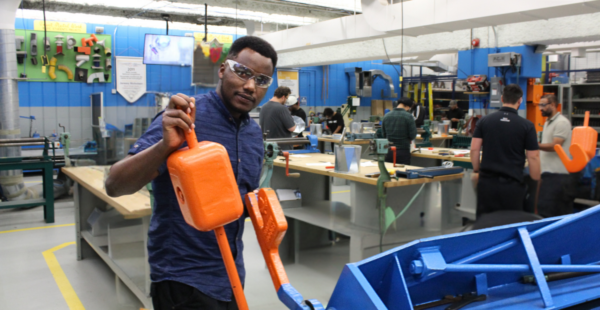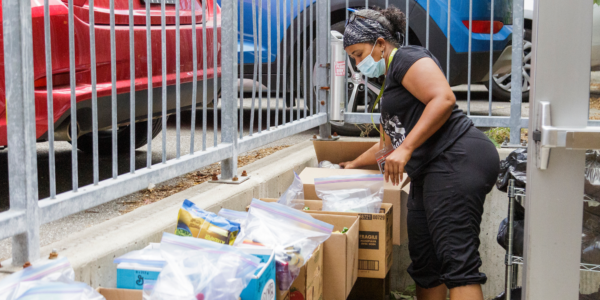Uzma became a caregiver very suddenly.
One morning, her cousin called her. She told her that her mother was being sent to Uzma’s house to stay.
“I thought they were just having a disagreement and that this would be temporary,” said Uzma, who wanted to be referred to by her first name only. “It wasn’t.”
Uzma became an unpaid caregiver for her elderly aunt, who was dealing with depression, dementia and hallucinations. It was a role that she wasn’t prepared for, including trying to navigate Ontario’s complex healthcare system to find support for her aunt and herself.
Caregiver videos are available online for free
Uzma isn’t alone. She is one of the thousands of caregivers in the Toronto area who have many questions and don’t know where to find the answers.
In response to this problem, this National Caregiver Day (April 4), WoodGreen Community Services, in partnership with its Ontario Health Team (OHT), East Toronto Health Partners (ETHP), has launched a series of free educational videos to help unpaid caregivers caring for older adults to find the support they need for their care recipients and themselves. The videos can be found online at woodgreen.org/caregivers or on WoodGreen’s YouTube channel.
Watch all the videos.
“Becoming a caregiver can be overwhelming, especially when you don’t know where to go to find information and support,” said Dorothy Quon, Vice President of Community Care with WoodGreen Community Services. “By creating these video resources, WoodGreen and the East Toronto Health Partners have created a one-stop online guide for caregivers to find answers to any commonly-asked questions and resources right here in Toronto.”
“East Toronto Health Partners is proud to partner with WoodGreen Community Services and local caregiver advisors on this much-needed free resource for caregivers in our community and beyond,” said Melissa Morey-Hollis, Vice President of Clinical, Rehabilitation and Transitions at Unity Health Toronto and a member of the ETHP Leadership Team. “This National Caregiver Day, we want caregivers to know that there are many resources available in the community for them. And these videos are a good place to start.”
Videos created with input from experienced caregivers
The 20 videos include topics such as what to do if your care recipient is in the hospital; how to access community care services such as personal support workers, transportation services, or Meals on Wheels; and how to create a power of attorney. There are also 14 additional videos in which caregivers share their experiences and advice about being a caregiver. The videos are currently in English and will be translated into other languages in the near future, so as many caregivers as possible can access and utilize these resources.
All the videos were created with input from the ETHP’s Caregiver Advisory Group, which Uzma is a member of, to ensure that the content is relevant and useful for other people who find themselves in a caregiving situation. The group is made up of current and former caregivers in East Toronto to help guide and advise the ETHP’s services, programs and initiatives so unpaid caregivers are considered at every level of care.
The caregivers say that the videos are filling a need in the community.
“I think these videos will be helpful for caregivers because not every caregiver is equipped with the knowledge on how the healthcare system works,” said Uzma. “It’s also good for caregivers to know that there are resources to support them as well.”
Currently, one in four seniors in Canada provides care or helps family members or friends with a long-term condition, a physical or mental disability, or problems related to aging. Also, by 2031, nearly a quarter of Canadians will be 65 years of age and older. As the number of older Canadians continues to go up, more and more people will find themselves in a position of caring for someone they know. Therefore, having resources in place to support caregivers now and in the future is essential.
“Caregivers play a vital role in helping support individuals to remain living in the community, and they need care too,” said Quon.
WoodGreen Community Services is a leader in providing caregiver support in Toronto. In addition to these video resources, WoodGreen offers one-on-one counselling and support groups to help caregivers problem-solve, prevent burnout and improve their health and well-being.





